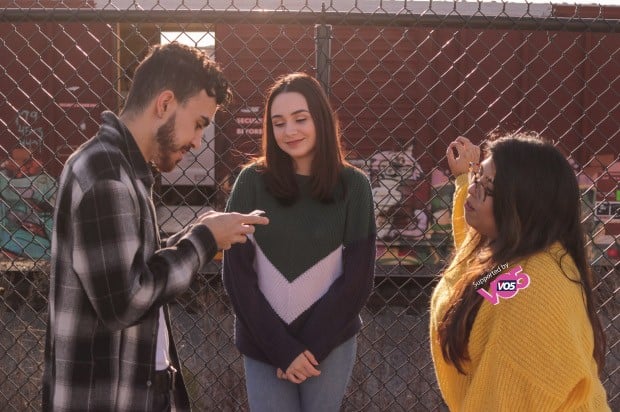Coping with social anxiety
Having social anxiety is more than just being shy. We explore what it means and how to get help if it’s affecting you.

It can feel easier to avoid social situations we fear rather then face them
Having social anxiety is more than just being shy. We explore what it means and how to get help if it’s affecting you.
So what is social anxiety?
Everyone knows that feeling of walking into a room full of people where they don’t know anyone. It’s nerve wracking. It’s really nerve wracking! But for someone with social anxiety, this feeling is overwhelming and pretty constant. Social anxiety is a fear of social situations and an extreme self-consciousness or worry about what people think of them.
Someone dealing with social anxiety may:
- Fear talking to strangers – going to the hairdressers, talking to sales assistants, answering the phone.
- Worry that people don’t like them or that people are judging them, including their friends.
- Worry constantly about embarrassing themselves. They may avoid answering questions in school or eating in front of people.
- Worry about blushing or having a panic attack in public
- Worry about and avoid social situations such as parties or even joining in on conversation.
If the above sounds all too familiar and you think you might have social anxiety, talk to your GP. They will be able to refer you to a trained counsellor who can help you overcome your anxiety through the use of things like talking therapy and Cognitive Behavioural Therapy. Remember, you deserve to feel good about yourself. In the meantime, you can try the following…
It’s time to break the cycle
Many people with social anxiety start to withdraw from their friends and social situations because it feels easier to avoid the situations we fear than face them. This is a totally understandable response but the problem is, by doing this, we never challenge our fears and as a result they become deeper rooted. As you can see, social anxiety is a dangerous thought cycle that needs breaking. The good news is, it can be broken with the help of a few nifty strategies:
- Do something every day that scares you. We know this sounds like stupidly scary advice but research into social anxiety shows that confronting the thing that frightens us on a regular basis is super effective in reducing anxiety.
- It can help to rank difficult situations in order of how anxious they make you feel. Example: No.1. Talking to a stranger on the phone – No.10. Making a speech. Start by confronting the least scary thing on your list and work your way up. There’s no rush to get to number 10.
- Try to remain in a situation until your anxiety reduces by at least half. For example, if you’re at a social event try to avoid hiding in the loos or leaving as soon as you arrive. If you give yourself time for your anxiety to calm down, this should be a real confidence boost.
- Try to focus on the here and now. If you’re at a social event, try to focus on the conversation and the people around you. By doing this you’ll be less focused on yourself and the way you’re acting. This is where something like mindfulness can be really helpful.
Remember, you’re not a mindreader
A lot of people with social anxiety get caught up in imagining what people think about them. The truth is, we don’t know what people are thinking and it’s unhelpful to makes things up. If you find yourself mindreading, try the following:
- Challenge your thoughts. Every time you tell yourself your friends think you’re boring, too shy or embarrassing, try to challenge these thoughts. Is there any hard evidence for what you’re thinking? You’ll find you can often label these thoughts as completely untrue.
- Try not to predict the future. The more we tell ourselves an event or situation is going to be scary or a failure, the more likely it will be. When you notice yourself predicting the future stop and remind yourself how unhelpful these thought patterns are.
- Be kind to yourself. The more you tell yourself that you’re making a fool of yourself or that you’re not funny enough, the more you’ll believe it. Try replacing these thoughts with positive affirmations. Eg. I am kind, I have a lot to offer, I am safe in social environments.
You can learn more about social anxiety and how to cope with it with this NHS self-help guide.
The charity KIDS have a group on social anxiety for young neurodivergent and/or disabled people aged 13-25. The group will be held on Thursday 22 February between 5pm – half 6pm and can be booked here: Social Anxiety Group – Young People’s Hub from KIDS.
Next Steps
- AnxietyUK run helplines, email support, live chats and therapy services for people with anxiety disorders. 08444 775 774
- Chat about this subject on our Discussion Boards.
By Olivia Capadose
Updated on 22-Oct-2018
No featured article














